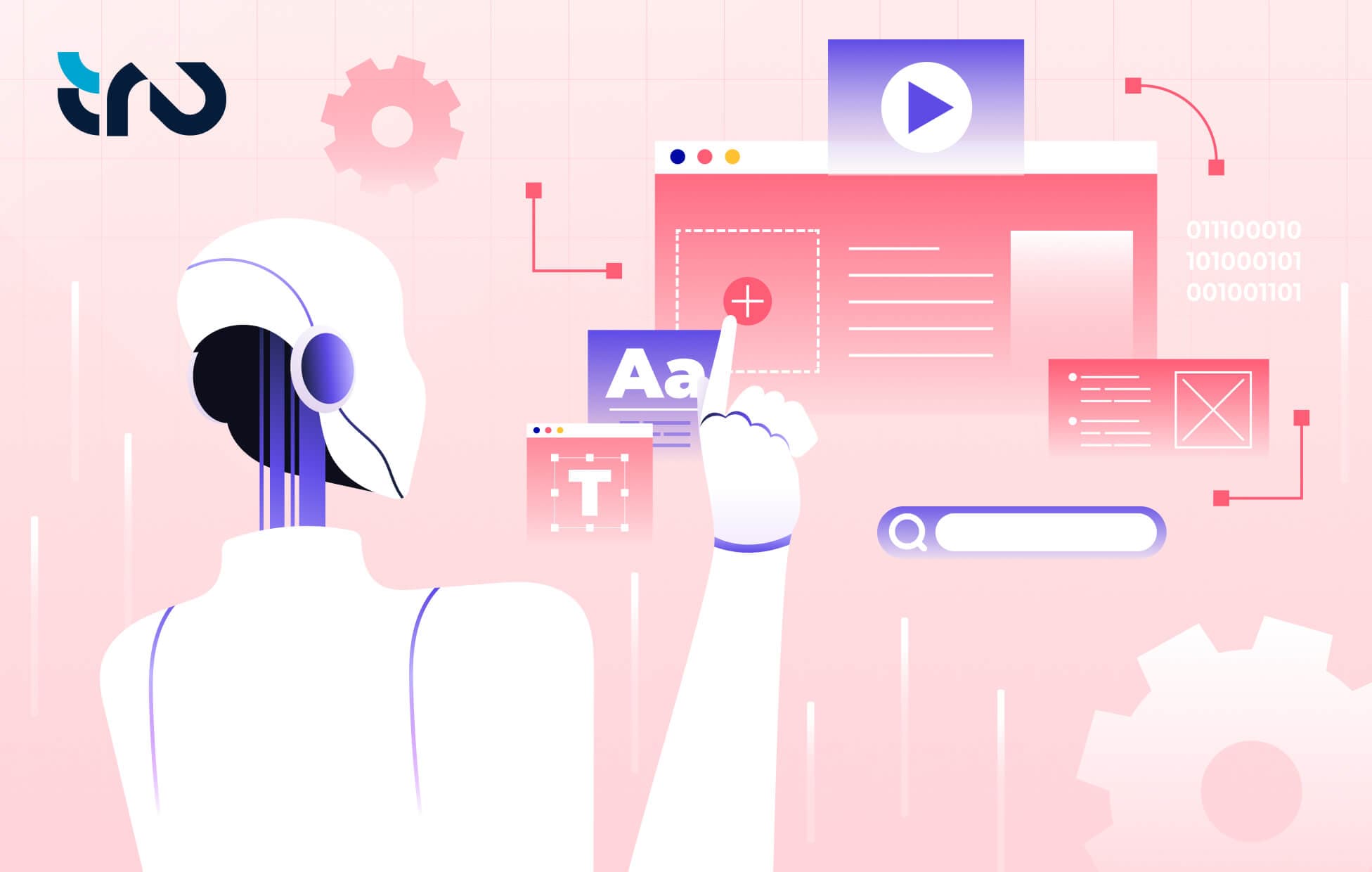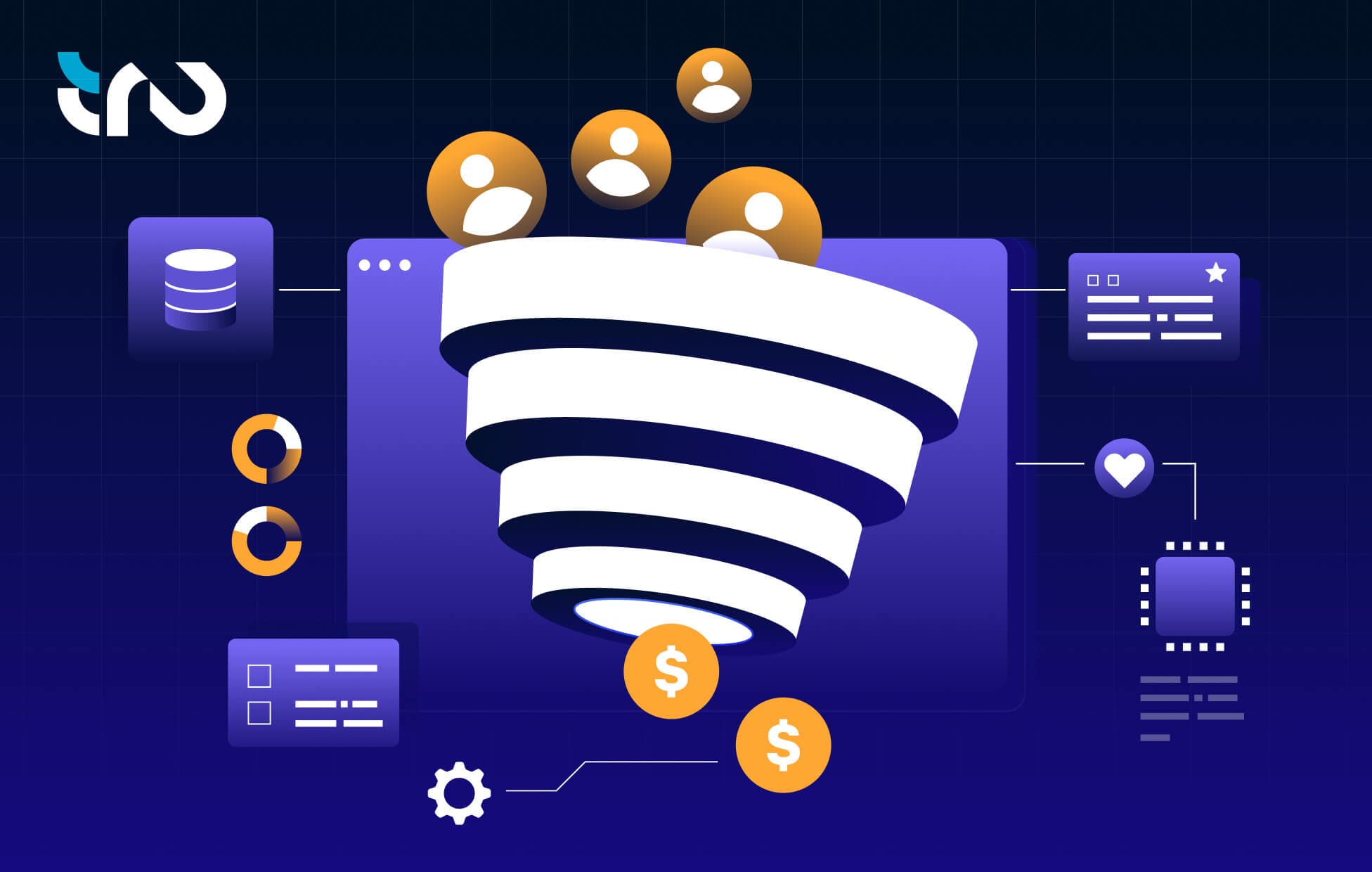According to Enterprise Apps Today, 75% of a website’s credibility is determined by its overall design and visual appeal. Moreover, 88% of users are unlikely to return to a website after a poor user experience. With web design now shaping SEO, customer decisions, and brand reputation, businesses are exploring smarter approaches to stand out.
From content creation, image, and video generation to coding and experience personalization, AI is deeply embedded in multiple business operations today. But can all these capabilities of AI also help design a complete website from the ground up?
This blog explores AI in web design, its applications, pros and cons, top tools, and real-world examples while answering the most asked question: “Can AI build a website?”
What is AI for Web Design?
AI for web design refers to the use of artificial intelligence tools and technologies to create dynamic website designs within minutes.
AI can generate tailored layouts and visuals based on user prompts. It arranges elements logically and in a visually appealing way, guided by target audience behavior and design best practices. AI automation also enables the instant generation and testing of multiple design variations.
By handling repetitive design decisions and suggesting data-driven enhancements, AI frees designers to focus more on creativity, visual storytelling, and user experience. The result is websites that are visually engaging, cohesive, and highly adaptable.
Check out our blog on Web Design Trends 2025 vs. 2024. Learn what’s new in the industry and what’s gone.
Key Use Cases of AI in Web Design
AI use cases in web design demonstrate how technology is reshaping design processes, enhancing efficiency, and improving user engagement. These applications highlight the practical ways AI supports creativity, usability, and performance in modern websites.
Automated Design Generation: AI generates layouts, color palettes, and UI components based on brand guidelines or simple inputs.
Personalization: AI analyzes user behavior to deliver personalized content, product recommendations, and experiences.
Chatbots & Virtual Assistants: Integrated AI chatbots enhance customer engagement and support.
Code Generation: AI-powered platforms can convert text prompts or wireframes into working code.
SEO & Content Optimization: AI suggests improvements for on-page SEO, readability, and UX.
Accessibility: AI tools help improve inclusivity by detecting accessibility issues and suggesting fixes.
Predictive Analytics: AI predicts user needs and guides design choices for better conversions.
Looking to enhance your customer journey with AI? Deliver personalized, user-focused journeys through Tru’s Customer Experience solutions.
Pros & Cons of AI Web Design
Relying on AI for designing your website can be both a boon and a curse, depending on your business requirements. Want to create a website for your small business? Great! AI can be the best. Want to revamp your enterprise business’s website? AI might not be the only thing you’d need.
Pros of AI Web Design
Faster Design Turnaround: AI accelerates prototyping, layout creation, and design iterations, drastically reducing project timelines.
Cost-Effective Development: Cuts expenses by automating repetitive tasks and minimizing reliance on large creative teams.
Scalable Personalization: Delivers tailored experiences at scale, adapting visuals and content to individual user preferences.
Data-Driven Insights: Leverages advanced analytics to refine design elements and improve overall user engagement rates.
Consistent Quality Output: Maintains uniform branding, reduces design errors, and ensures professional-grade execution.
24/7 Availability: Provides uninterrupted design support, enabling businesses to iterate continuously without delays.
Bring your vision to life online. Explore Tru’s Website Design Services for scalable, conversion-focused digital experiences.
Cons of AI Web Design
Lack of Human Creativity: Struggles to capture emotional nuance, unique artistry, and innovative storytelling approaches.
Risk of Generic Templates: May result in repetitive layouts, reducing distinctiveness and overall brand identity.
Limited Customization Options: Faces difficulty handling complex, highly tailored, or unconventional design requirements.
Integration Challenges: Often requires additional resources to align with legacy systems or advanced workflows.
Dependence on Data Quality: Ineffective or biased data undermines personalization, usability, and overall design effectiveness.
Potential User Disconnect: Excessive automation risks impersonal experiences, weakening brand authenticity and trust.
Top AI Tools & Platforms for Web Designing
Every AI tool or platform for web design has its own strengths. While some can create strong wireframes, others can provide attention-grabbing designs and even create complete websites in minutes. Below are some hand-picked tools that can help you use AI for website design creation and management.
Relume – Generates sitemaps and wireframes instantly, streamlining the early design process.
Wix ADI – Creates full websites from a few prompts, perfect for beginners.
Hostinger AI Website Builder – Affordable and fast tool for building functional sites without coding.
Figma AI – Offers intelligent design suggestions and automated prototyping for creative teams.
Framer AI – Builds responsive, interactive websites directly from text descriptions.
GoDaddy Airo – Simplifies website creation with automated design, content, and marketing tools.
Examples of Brands Using AI in Web Design
AI for web design is not just an idea; many big brands have brought it to life already. Be it for a dynamic and personalized website user experience or to produce different interactive visuals, AI web design is taking a 360-degree lead.
Casio UK (AI-Optimized Layout & Content)
Casio UK leverages AI to refine its e-commerce site layout and user experience. Using the Nosto AI recommendation engine, the brand tests widget placements across pages to maximize impact. By automating content placement, Casio ensures customers “find the right products quickly” while improving overall conversion rates.
Deloitte Digital (Adobe Firefly Integration)
Deloitte Digital integrates Adobe Firefly’s generative AI to produce large volumes of branded visuals, including 3D-rendered assets. This capability enhances creative speed and consistency across web, email, and social platforms. The result is faster content delivery, improved brand alignment, and higher-quality digital experiences for Deloitte’s global clients.
Zalando (AI-Generated Website Imagery)
Zalando employs generative AI to accelerate online fashion content creation and personalization. The retailer now creates many products and marketing images with AI, drastically cutting production time (from weeks to days) and improving relevance for shoppers. Zalando also generates 3D “digital twin” model replicas to showcase clothing virtually, reducing costs while offering shoppers immersive, flexible experiences.
Make your business the next to drive revenue. Explore Tru’s User Experience Services to elevate every interaction.
The Most Asked Question: Can AI Build a Website?
Yes, AI can build functional websites with minimal coding by automating layouts, content, and user experiences. However, complex enterprise websites with numerous pages demand advanced integrations, governance, and creative strategy where human expertise is essential.
AI-powered website builders simplify development by generating designs, writing content, and optimizing user journeys. They enable quick launches and let even non-technical users create professional sites through intuitive, no-code interfaces. Customization options allow businesses to adjust branding, visuals, and layouts without deep coding knowledge.
Enterprise websites, on the other hand, operate at a different scale. They require seamless integration with systems like CRM, ERP, and analytics, as well as strict compliance, multi-language support, and robust security. These complexities call for skilled teams who can design architecture, ensure performance, and lead innovation.
Related Insight: Could AI Design Your Entire Marketing Funnel? We Tried It.
In practice, AI accelerates the process by removing repetitive tasks, while human expertise ensures enterprise-grade reliability, creativity, and long-term scalability.

